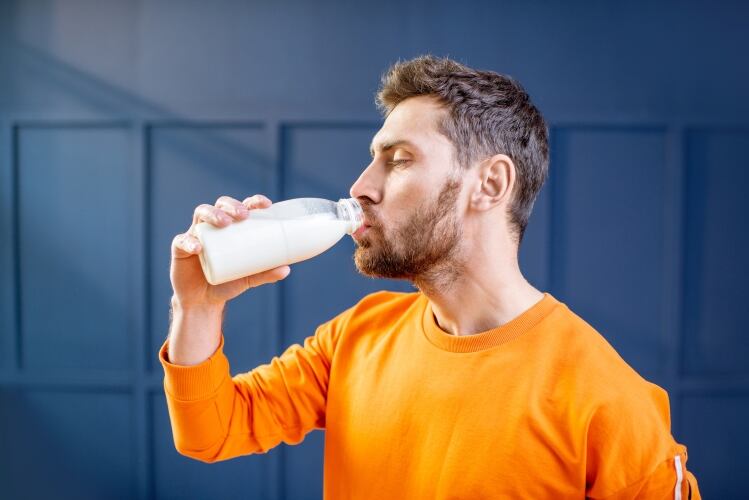As dairy products are thought to improve recovery after both resistance and endurance exercises due to their nutritional proprieties, a group of researchers at the Department of Physical Education and Sport, Faculty of Sport Sciences, University of Granada in Spain, reviewed the effects of dairy product intake on exercise performance and recovery of muscle function in humans.
The initial search retrieved 7,708 articles, and a total of 11 studies were included after applying inclusion and exclusion criteria. All the selected studies were conducted with cow’s milk.
The paper notes that dairy products are rich in amino acids, proteins, lipids, minerals and vitamins, and their beneficial properties are based on the fact that dairy products, and especially cow’s milk, contains lactose (carbohydrate), casein and whey protein, as well as calcium.
It notes the other nutrients present in cow’s milk, such as calcium, sodium or potassium, could aid in fluid recovery after exercising, and this improvement in the hydration state could help the recovery of the skeletal muscle.
Whereas some studies found significant effects of cow’s milk intake on performance or recovery of muscle function, such as attenuated losses in peak torque, countermovement jump, rate of force development, sprint series and inflammation and markers of muscle damage, the researchers say other studies did not find any effect.
The authors suggest this could be due to the heterogeneity of cow’s milk ingestion (e.g., amount of cow’s milk, timing of consuming the cow’s milk), to the type of intervention, and to the large heterogeneity of outcomes measured.
The researchers concluded that it cannot be determined whether cow’s milk has a positive effect on exercise performance and recovery of muscle function in humans, due to the limited number of studies included in this systematic review.
However, they state that since cow’s milk is a source of protein, carbohydrates, calcium and other nutrients, this may lead to an increase in the serum amino acid concentration and, therefore, help the muscle damage repair process.
In line with this, some studies included found significant effects of cow’s milk intake on performance and recovery of muscle function.
For these reasons, the scientists say, more and better study designs such as blinding the beverage to both, participants and personnel, generate a random sequence of beverage group, etc. are needed to demonstrate its usefulness as a sport nutrition-related supplement.
Alcantara, J.M.A., Sanchez-Delgado, G., Martinez-Tellez, B. et al. Impact of cow’s milk intake on exercise performance and recovery of muscle function: a systematic review.
J Int Soc Sports Nutr 16, 22 (2019). https://doi.org/10.1186/s12970-019-0288-5

